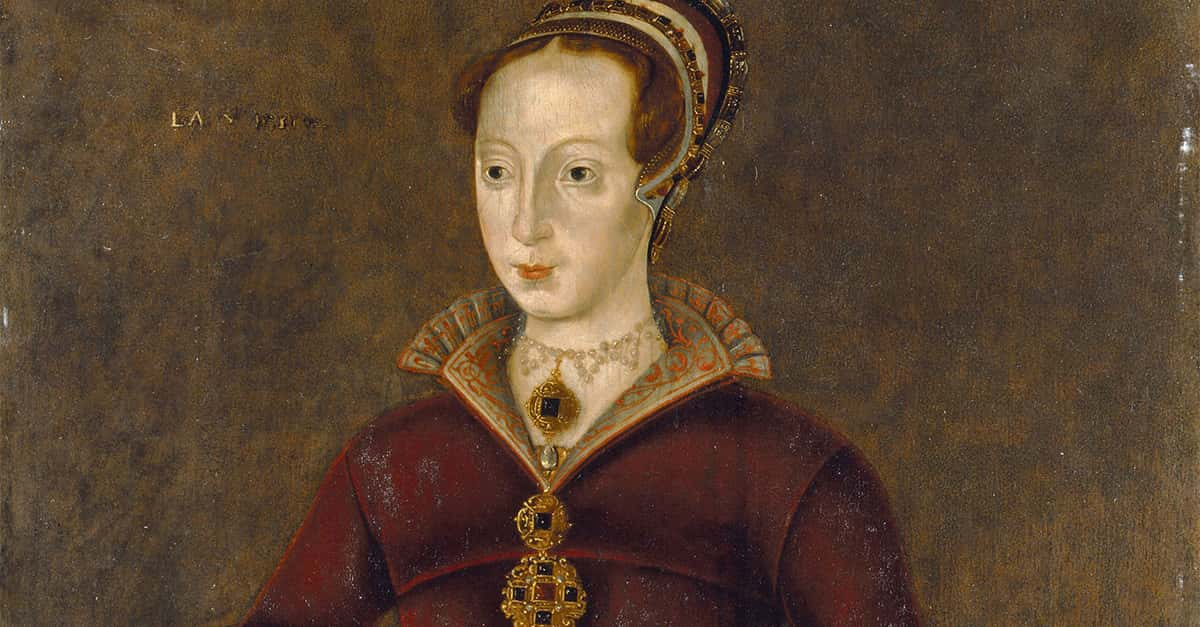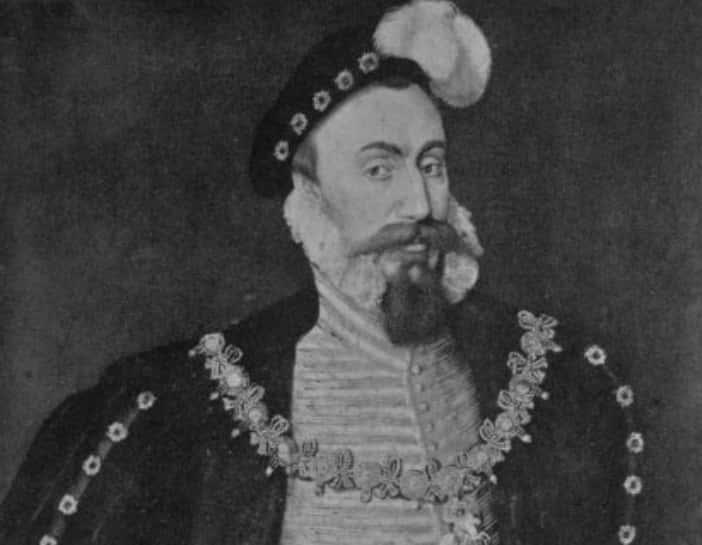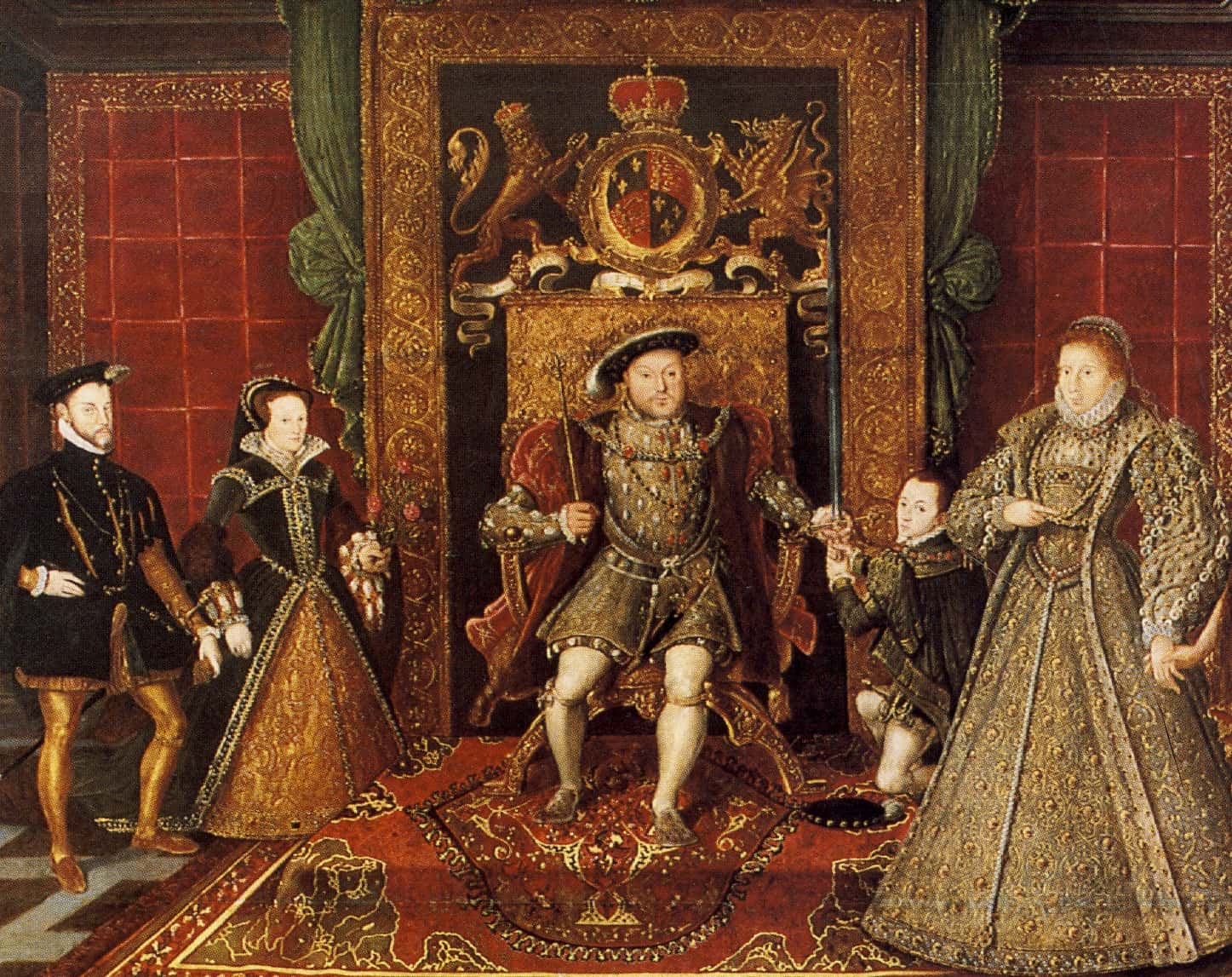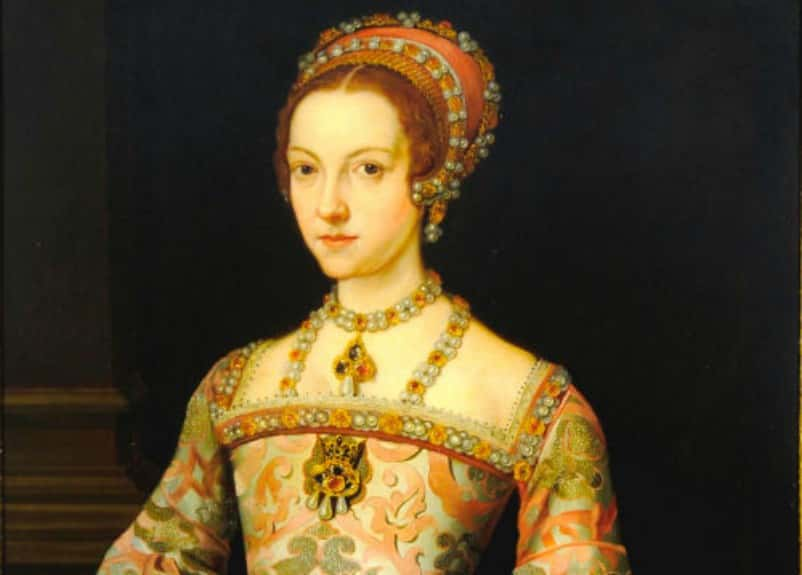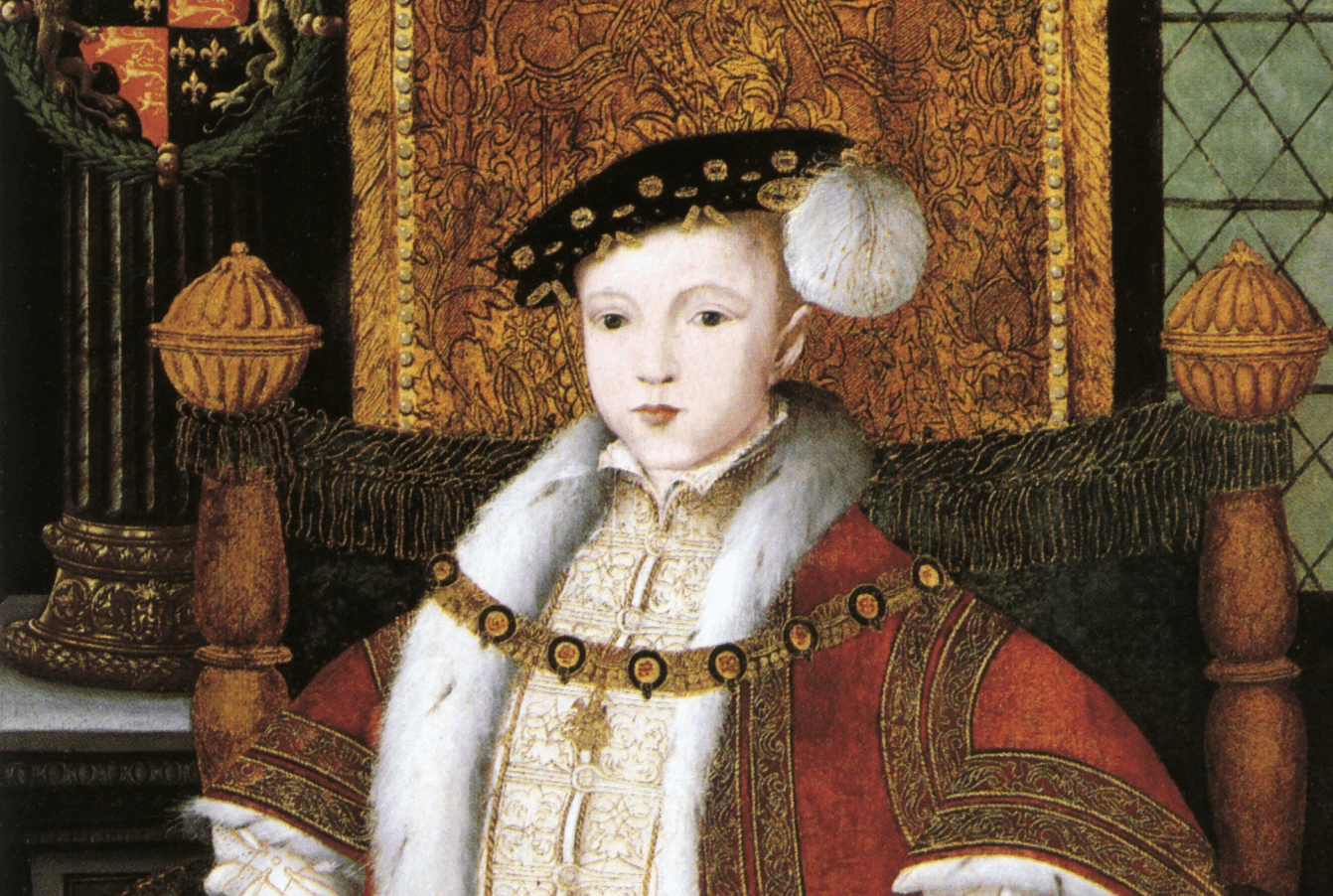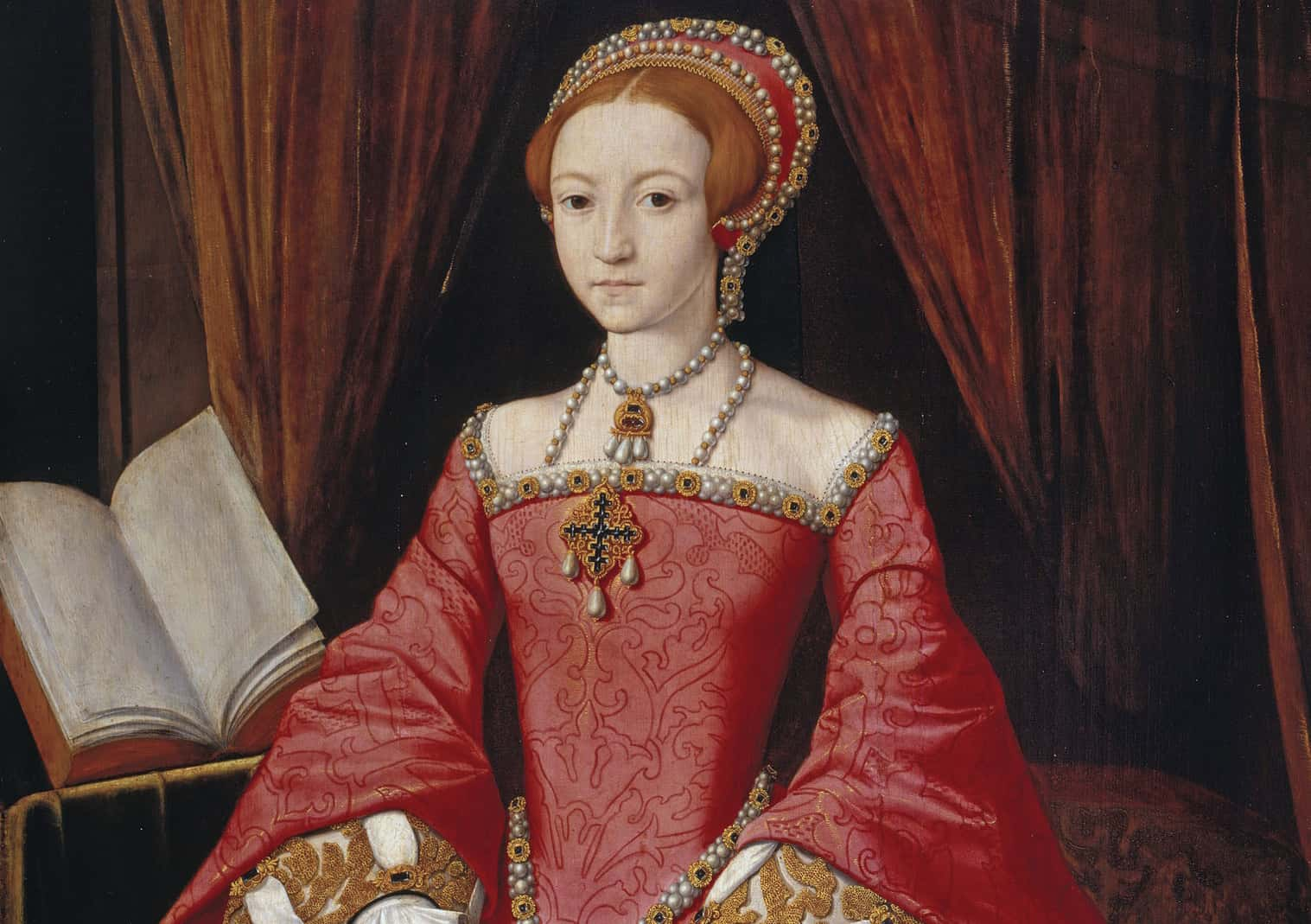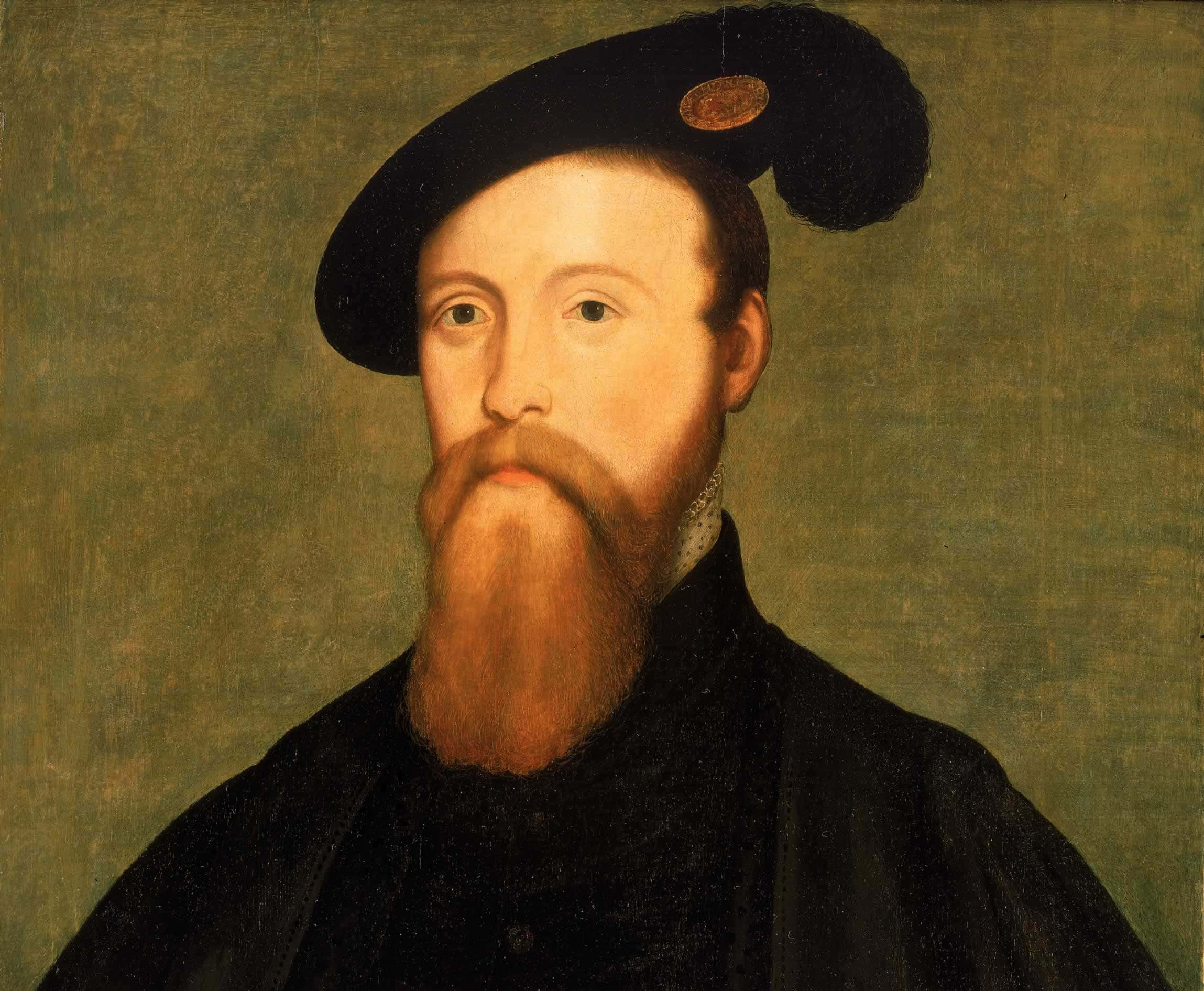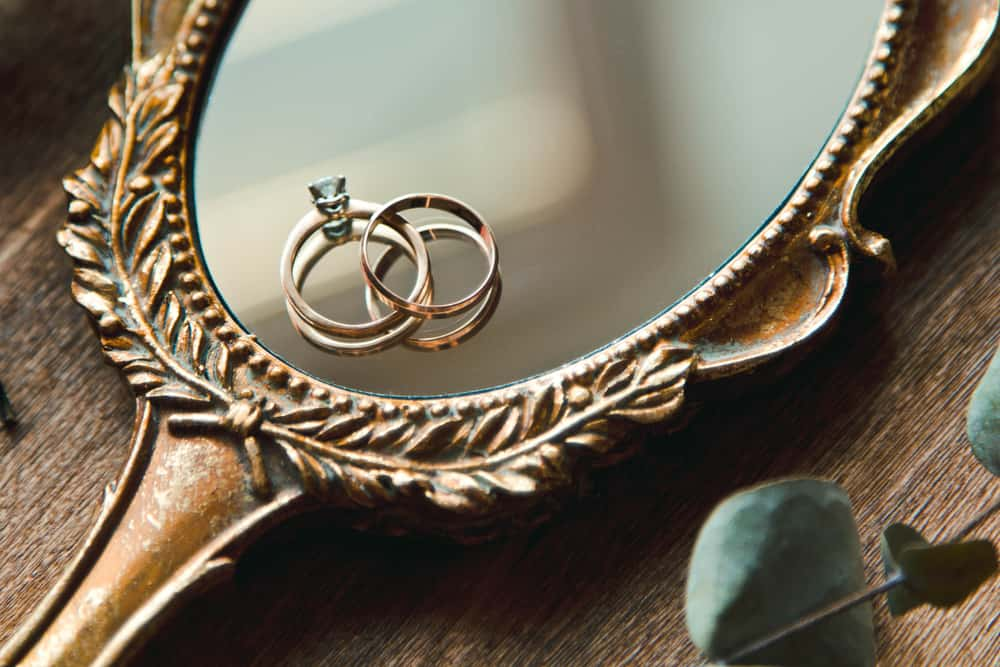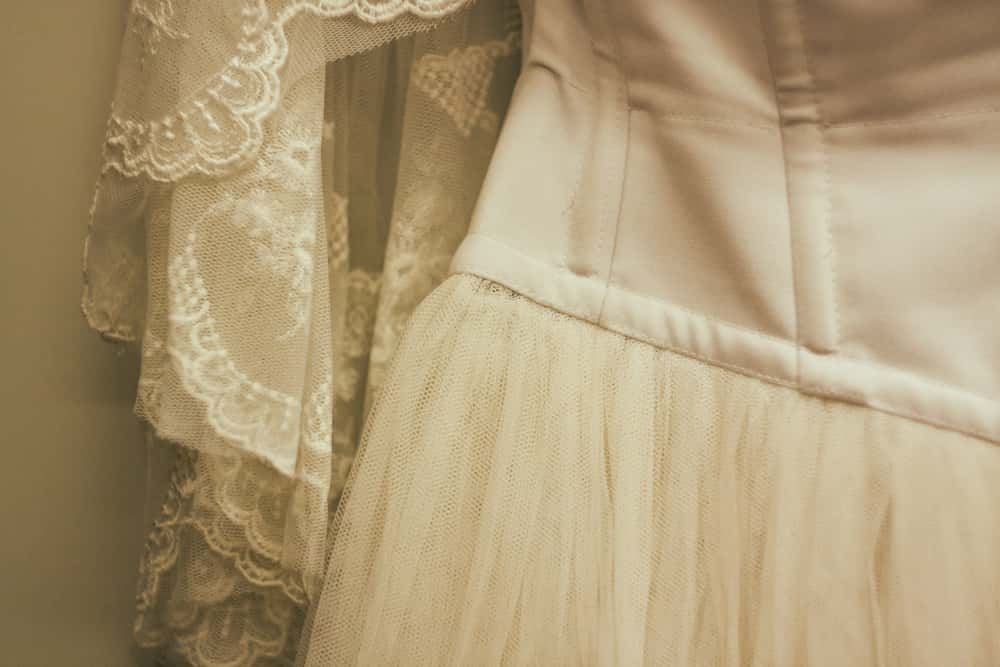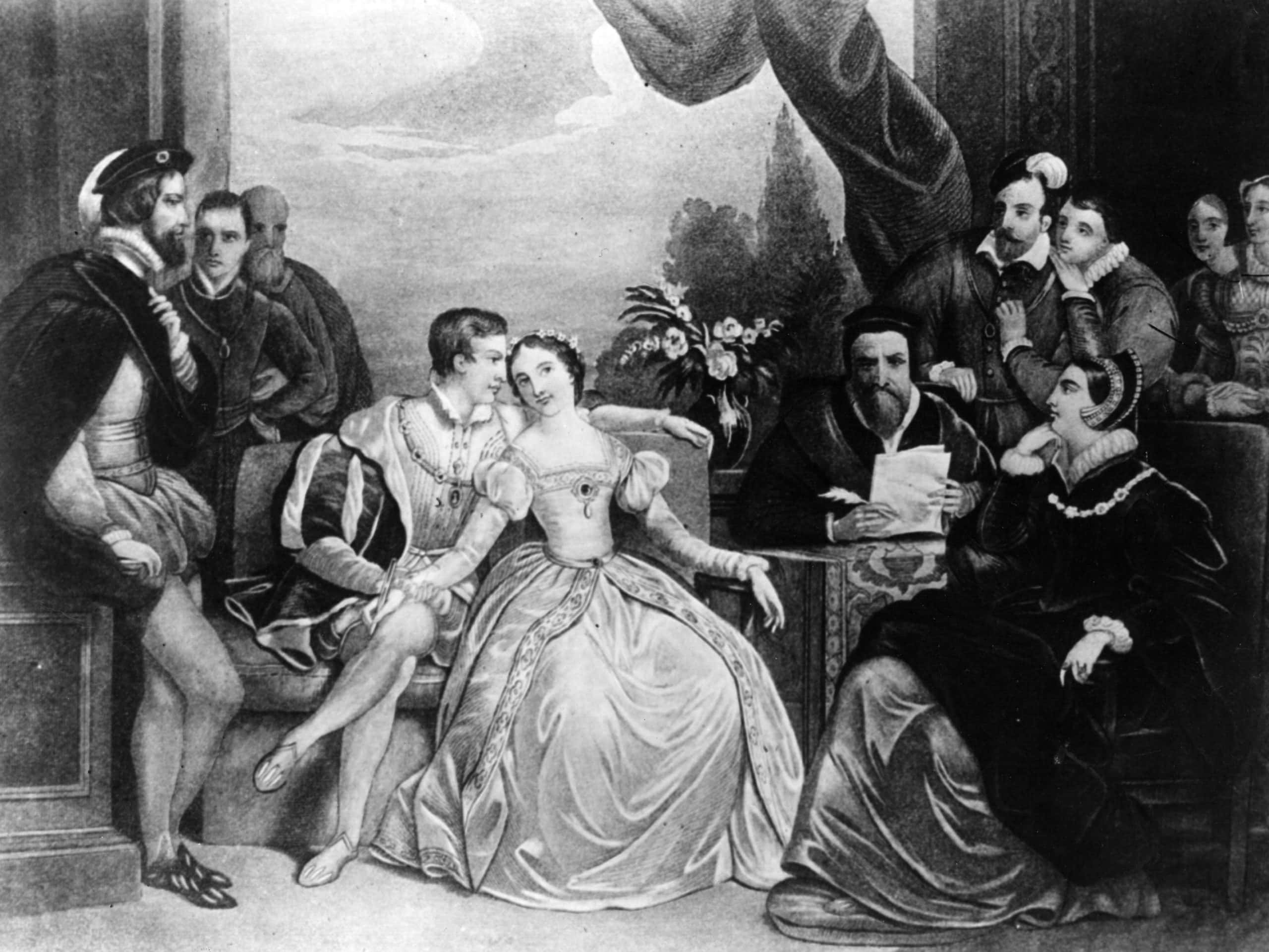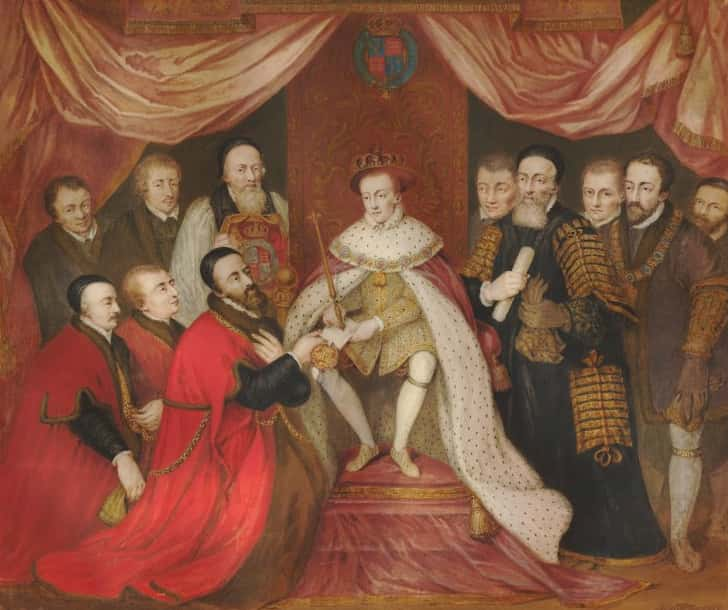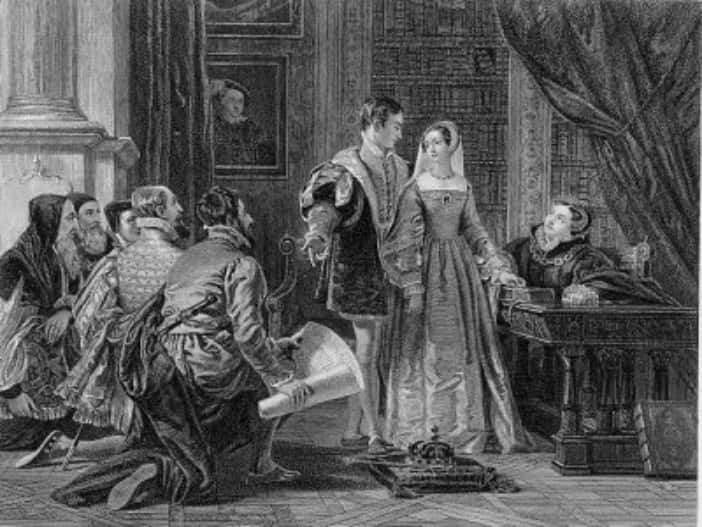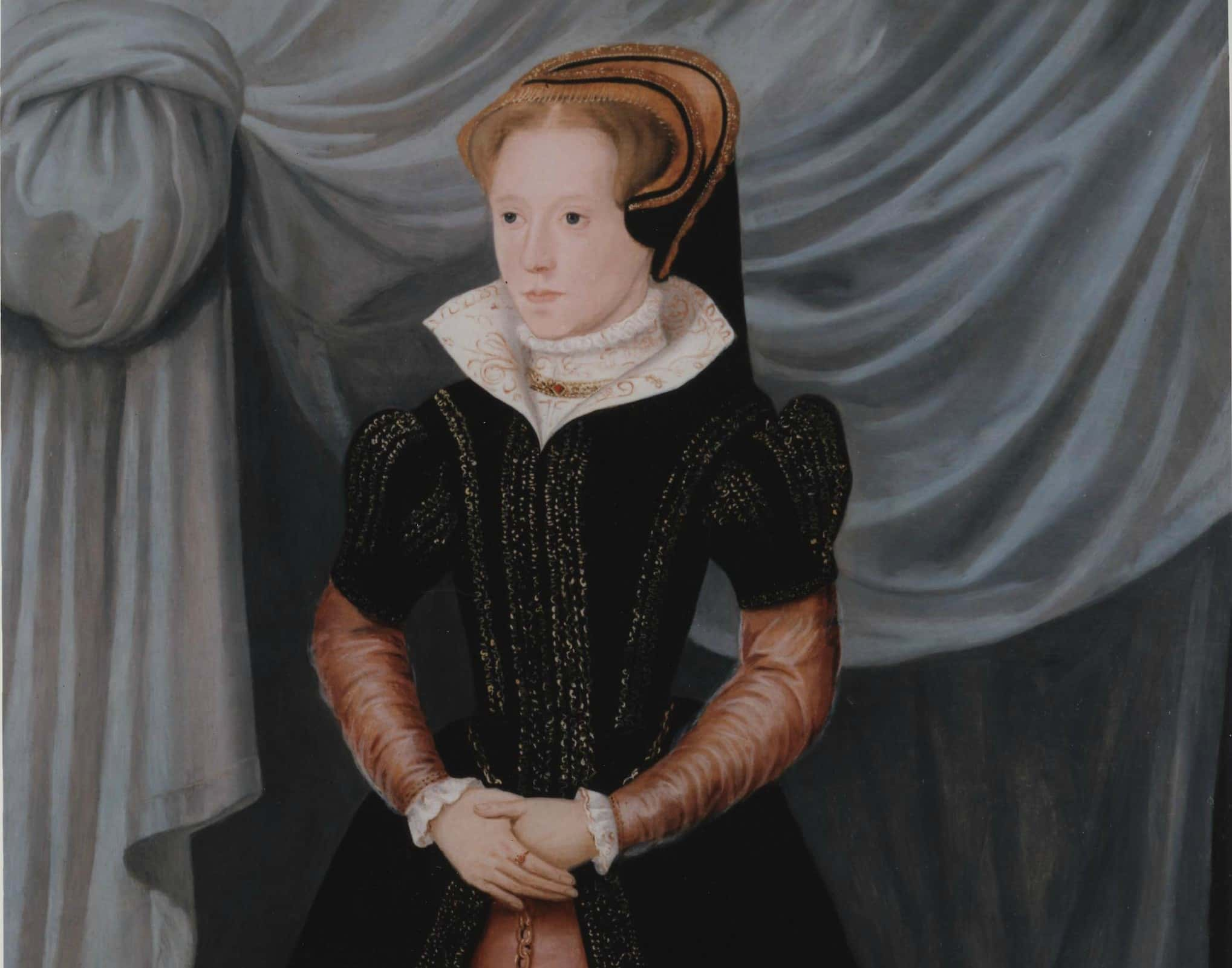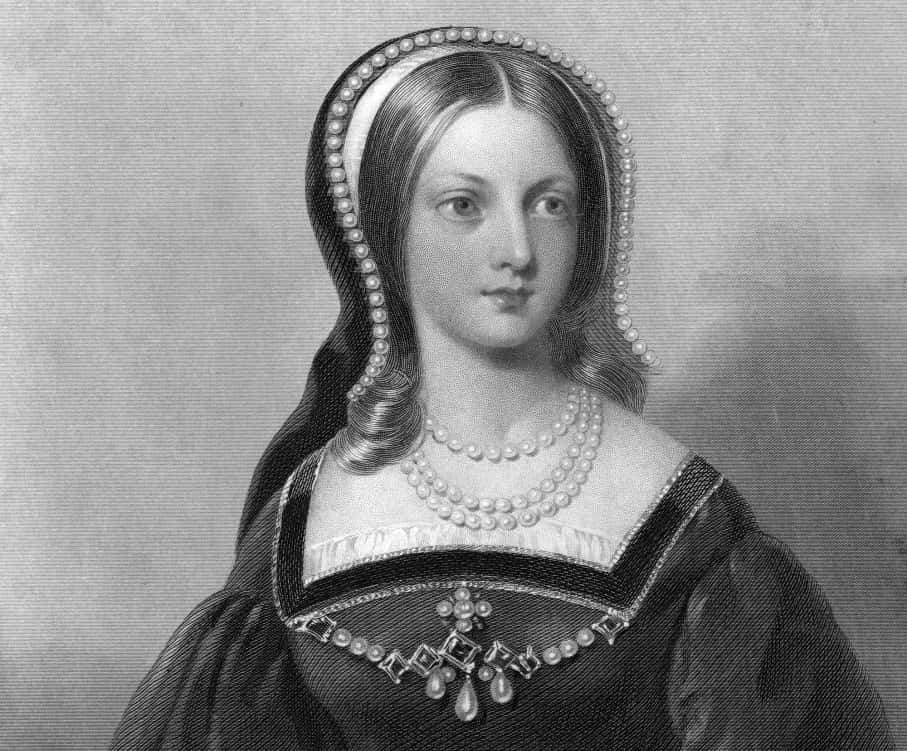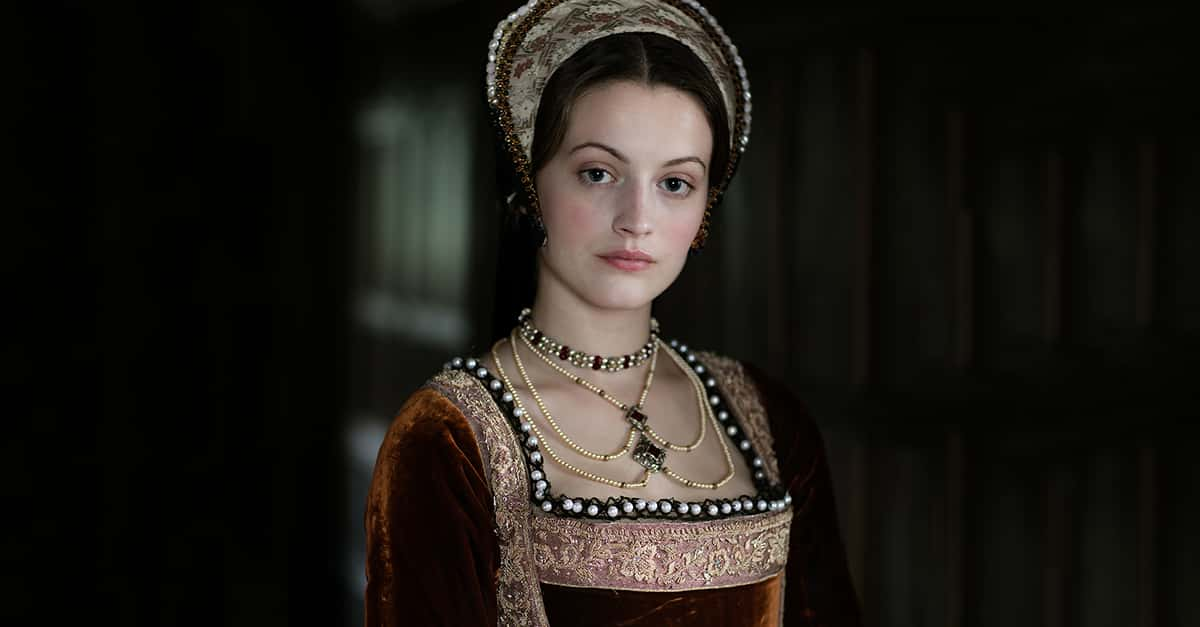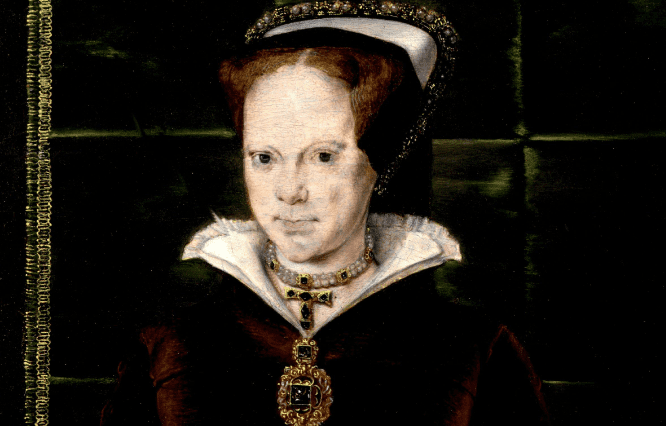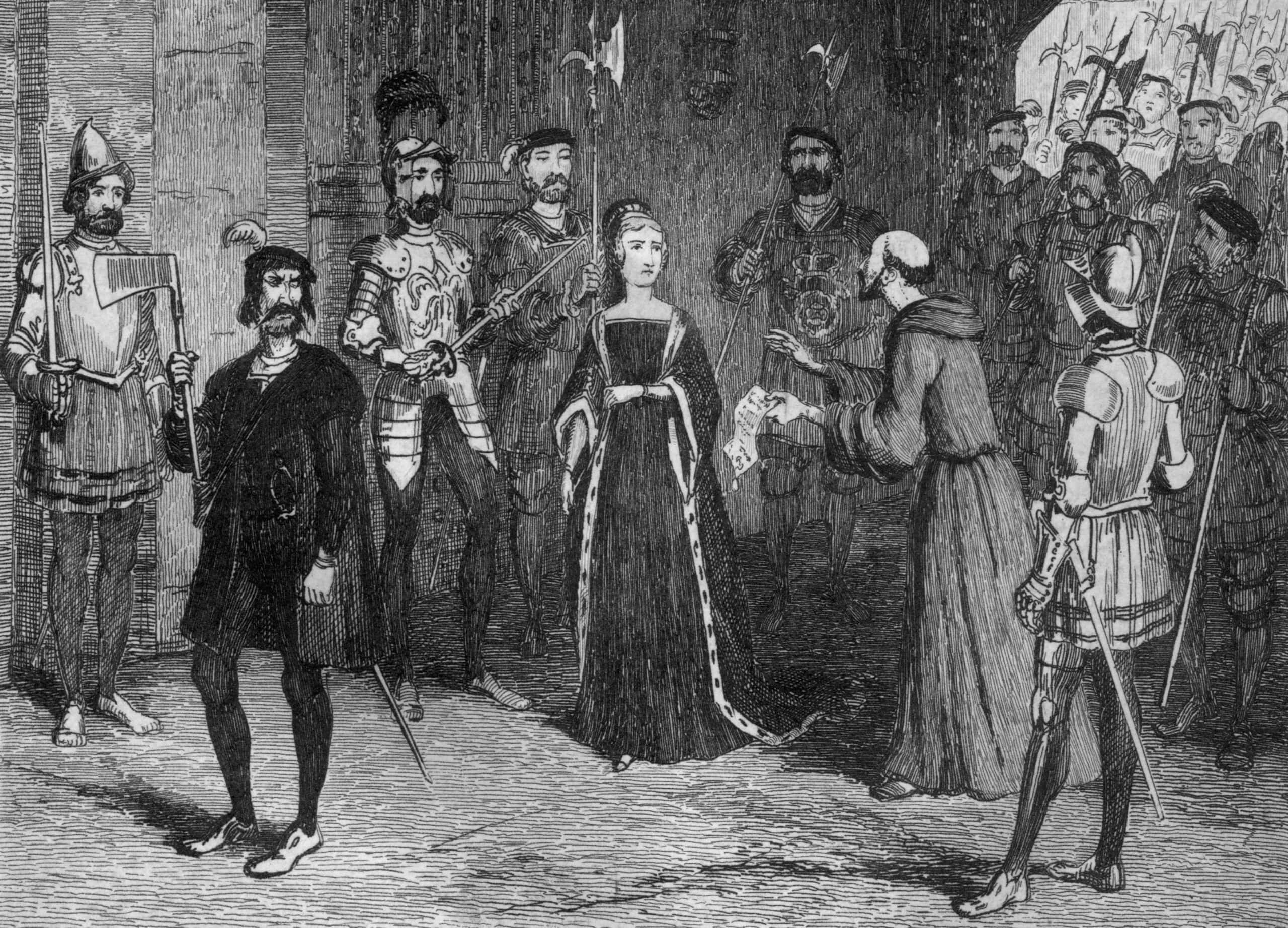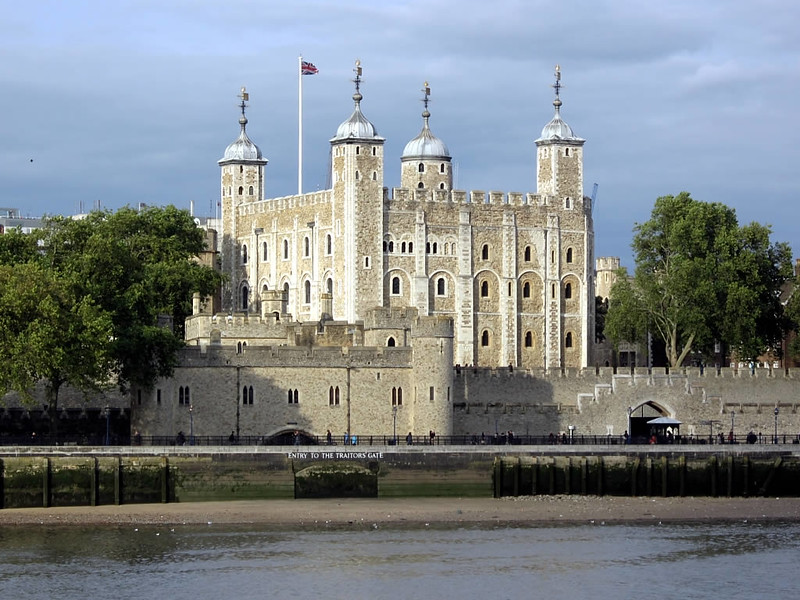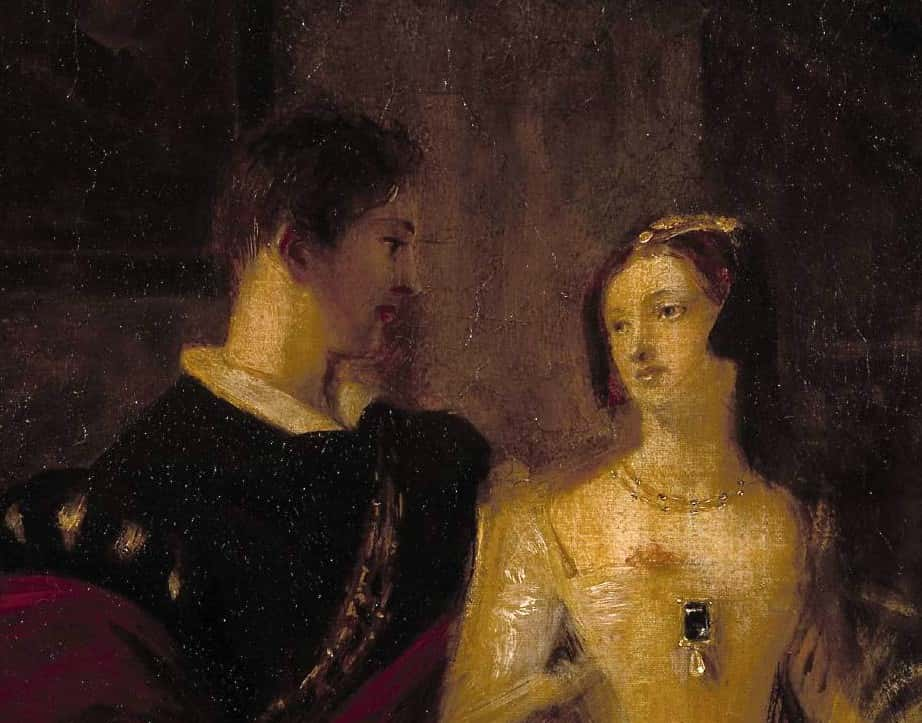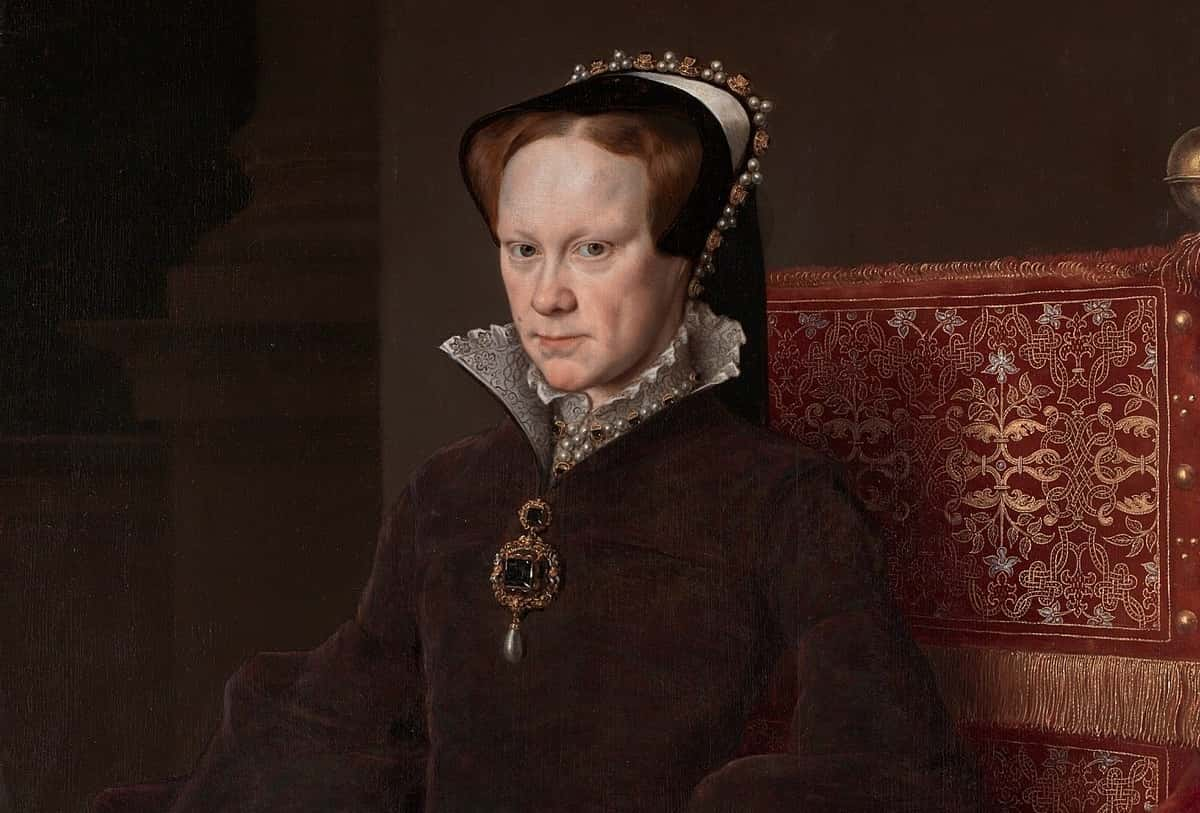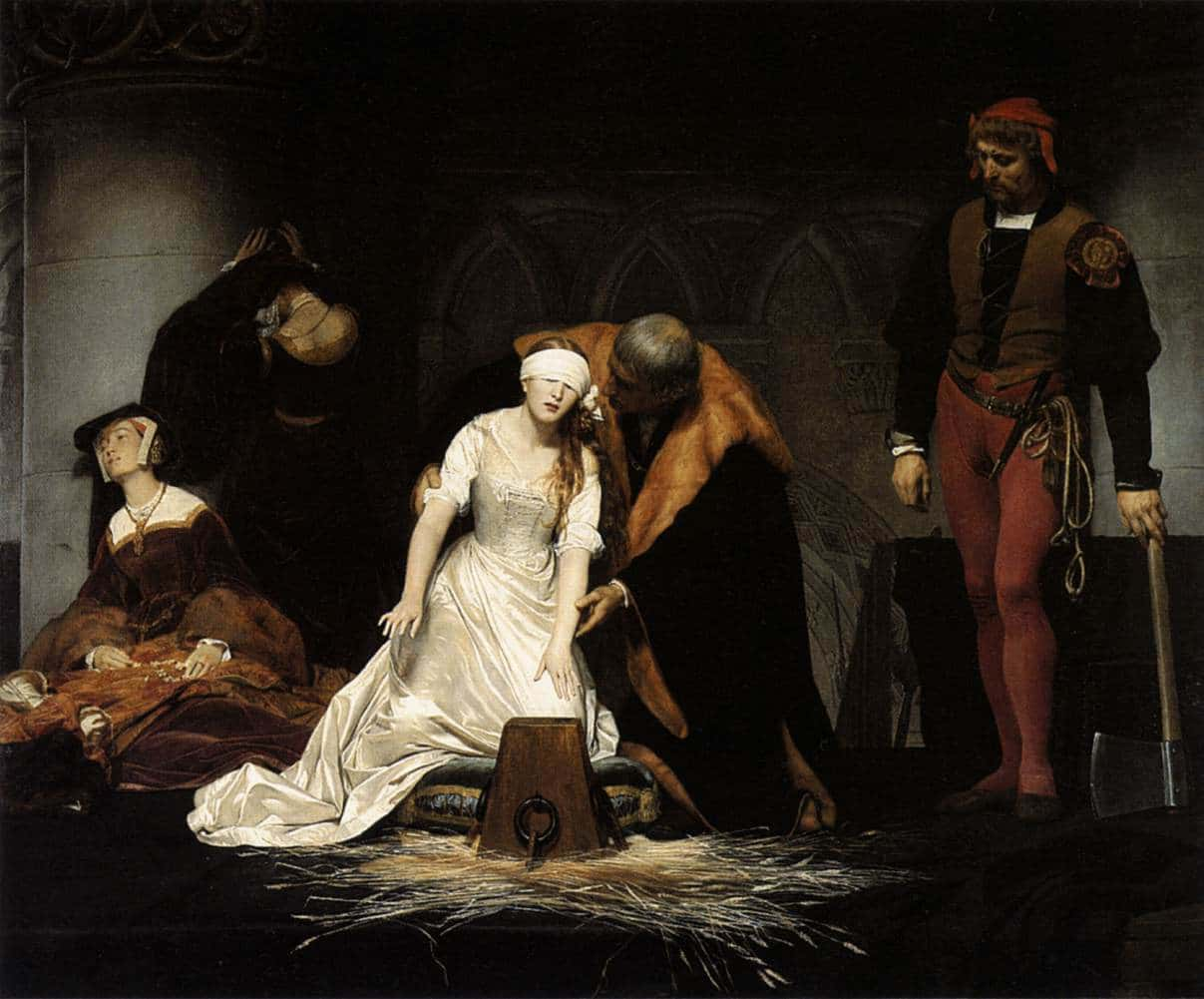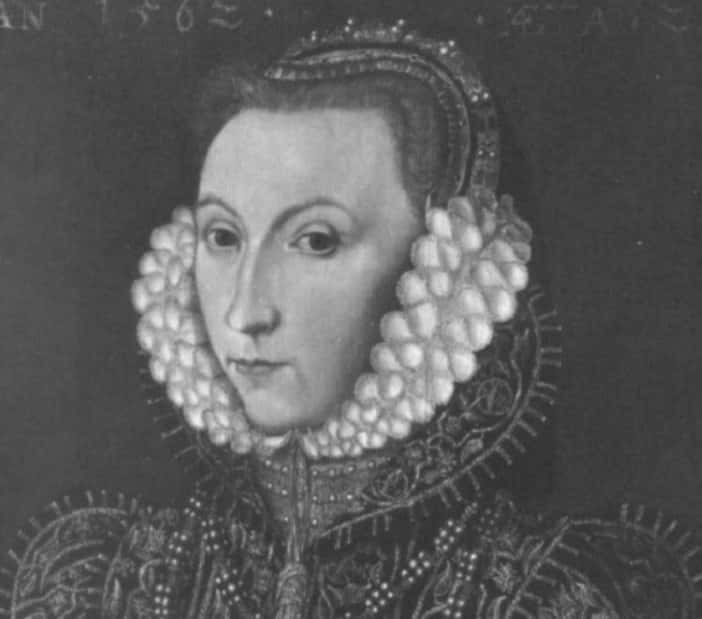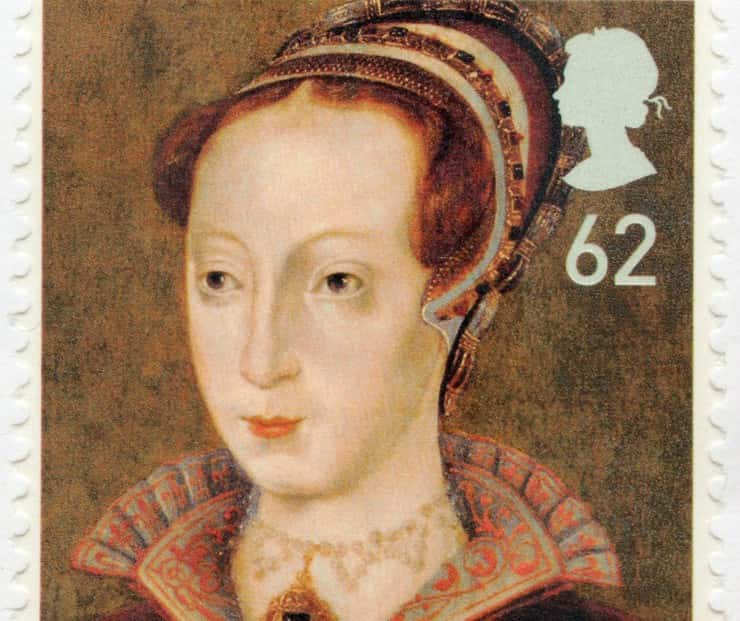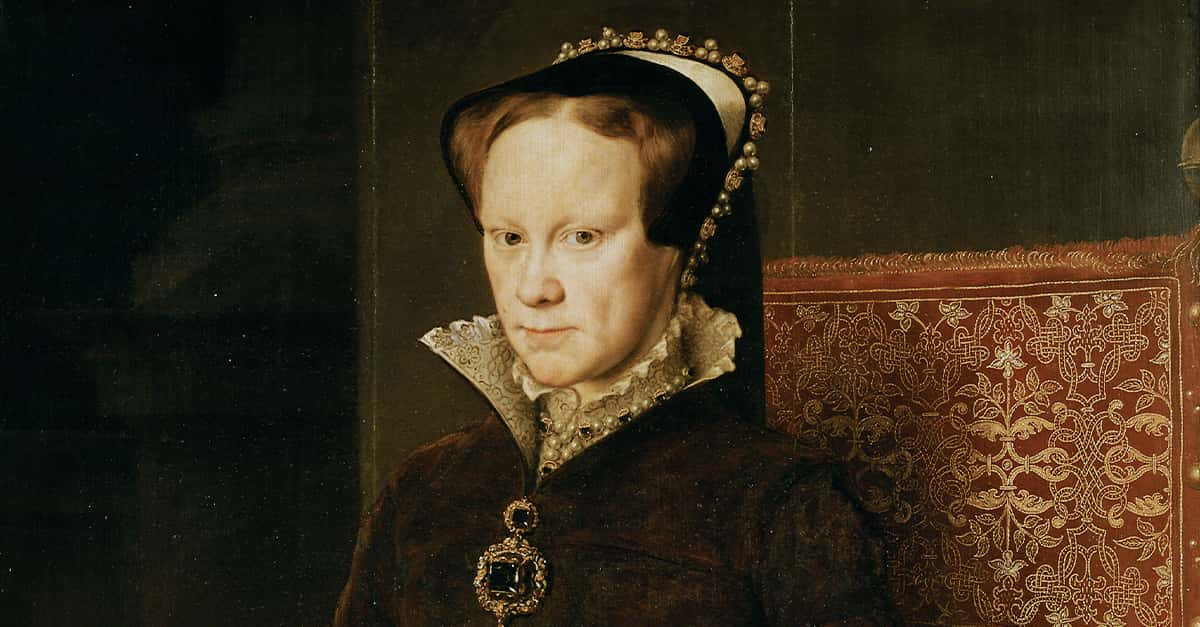Lady Jane Grey isn’t called the “Nine Days' Queen” because her reign was long and prosperous.
1. She Was The Nine Day's Queen
Lady Jane Grey holds an extremely dubious historical title. She's the queen with the shortest reign in history—just nine days, hence her nickname "The Nine Days' Queen". Yet for all the brevity of her time on the throne, her story is one full of toxic love, scandalous feuds, and vicious plot twists.
2. She Was Related To Henry VIII
Despite the heights she would (briefly) reach, Jane was not born to an important branch of the royal family tree, though they were royal. Born in 1537, Jane was the eldest of three girls born to Henry Grey, the 3rd Marquess of Dorset, and Frances Brandon, a niece of Henry VIII.
Although it didn't help her in the brutal end, this connection did start out with some perks.
3. She Was Bookish
Jane received one of the finest humanist educations for a lady of her day. She was fluent in multiple languages, and seem to prefer reading to more boisterous activities like hunting. One day, the visiting scholar Roger Ascham asked why she was inside instead of on the family hunting trip. The young girl replied that “their sport in the park is but a shadow to the pleasure I find in Plato".
That said, Jane may have had a darker reason to avoid her family.
4. Her Parents Were Cruel
Jane's parents were incredibly harsh, and it made her utterly miserable. Jane once confided the pressure she was under to perform every little act perfectly. If she didn't, she was cruelly tormented and threatened, if not outright physically abused by her parents. She wrote that their taunts made her think that she was in hell. Little did she know, it could get worse.
5. She Was An Unlikely Heir
In 1544, King Henry VIII altered the rules for his succession. Little did anyone know, it would change Jane's life forever. In the bill, the king famously re-inherited his daughters, Mary and Elizabeth, but also laid out that Jane’s family, as his sister's descendants, would inherit the throne in the event that all three of Henry’s kids passed before having heirs.
Jane was now technically fourth in line for the throne, but no one thought she would ever inherit. In fact, her path to the crown started in a much different place.
6. She Had A Royal Role Model
At nine years old, Jane Grey was sent to the royal court as a ward of Henry's queen Catherine Parr. Parr, who was smart and steady, was obviously a good role model for Jane—but she was also incredibly close to the center of power at court, which mattered immensely to Jane's family. Still, things didn't stay steady for long.
7. Her Parents Wanted Her To Be Queen
Soon after Jane's arrival in court, her world turned upside down. Henry VIII died, making his young son King Edward VI. More than that, Catherine Parr quickly remarried Thomas Seymour, Edward's maternal uncle and an influential court figure in his own right.
Indeed, when Jane followed Parr and Seymour into their new marital house, it was likely because her parents hoped she would one day end up marrying Edward VI. Only, this was no fairy tale.
8. She Was The Princess's Playmate
When Jane moved into her new house, the young Princess Elizabeth Tudor was also living with her stepmother Catherine Parr. It quickly soured. Thomas Seymour took a very inappropriate interest in Elizabeth, "romping" around with her with an intimacy Elizabeth hated.
Eventually, Catherine sent Elizabeth away, and Jane was alone without a playmate. Alone, and soon grieving.
9. She Lost Her Surrogate Mother
Catherine Parr, though she was advanced in age for a Tudor, soon got pregnant by the creepy Thomas Seymour—and it would be her doom. A few days after giving birth to her only child, Mary Seymour, Parr died from maternal complications. At just 11 years old, Jane acted as the chief mourner in her surrogate mother's funeral. Now Jane's fate hung in the balance.

History's most fascinating stories and darkest secrets, delivered to your inbox daily.
10. She Was In Limbo
Jane remained with Thomas Seymour for several months after Catherine Parr’s passing, though her parents—apparently antsy and annoyed that no marriage to King Edward had materialized—wanted her back home. Eventually, they had to demand Seymour return her. But there's a creepier side to this story.
 Showtime, The Tudors (2007-2010)
Showtime, The Tudors (2007-2010)
11. Her Parents Saved Her From A Horrible Fate
Many think Jane's parents wanted her back not just because they had given up on Edward, but because they were terrified of Thomas Seymour. Specifically, they were scared that the ambitious and clearly amoral Seymour might whisk Jane away and marry the heiress for himself, in spite of her young age.
They were right to worry. As it turned out, Jane escaped just in time.
 Showtime, The Tudors (2007–2010),
Showtime, The Tudors (2007–2010),
12. Her Guardian Was Executed
Two months after Jane returned to her parents’ home, Thomas Seymour was arrested and executed for high treason. Besides attempting to marry Jane to King Edward VI, he also got caught in a dovetail of other bungled decisions, from allegedly plotting to marry Elizabeth Tudor without council permission to shooting the king’s dog.
Only, this didn't mean Jane or her family were safe. Not in the slightest.
13. Her Family Was In Danger
Jane's father's connection to the disgraced Thomas Seymour put the Grey family under temporary suspicion. Henry Grey was interrogated four times, whereupon he proposed that Jane marry the eldest son of Edward Seymour, Lord Protector and Duke of Somerset.
This attempt to smooth things over was turned down, and young Jane was still single despite all the plots swirling around her. But she wasn't single for long.
14. She Finally Found Her Prince Charming
In 1553, Jane was finally betrothed—not to the king, but to the handsome Lord Guildford Dudley. Jane’s new fiance was also the brother of a more famous Dudley: Elizabeth I of England’s future favorite and possible more-than-friend, Robert Dudley. Still, like so many things in Jane's young life, any fairy tale fantasies were soon crushed.
15. She Had An Unusual Wedding
In extremely utilitarian fashion, Jane Grey and Guildford Dudley married in a triple wedding. The co-brides were Jane’s younger sister, Catherine Grey, and Jane’s future sister-in-law, Katherine Dudley. The three couples (six people in total) were married to their respective spouses on May 25, 1553.
16. She Had No Time For Her Big Day
Clearly, the Greys and Dudleys weren't messing around when it came to making their allegiances with each other. They also weren't wasting any time: Jane’s wedding was so rushed, she had to borrow her dress from the royal Master of Wardrobe on a loan. And it still gets worse.
17. Her Wedding Was Ruined
During the wedding, a disturbing incident occurred. Jane’s groom (and other guests) was struck by a horrible bout of food-borne illness after a chef mixed up some ingredients. It seemed like a dark omen for the future unions, and the horrible day didn't lead into a rosy honeymoon period either...
18. She Enraged Her New Mother-In-Law
Throughout these manoeuvrings, Jane was not happy. After months of upheaval, Jane understandably showed some resistance to moving in with her new husband. This reluctance absolutely “enraged” her new mother-in-law, the Duchess of Northumberland, leaving her in a precarious position with her new in-laws.
Jane may not have known how deep she was in it.
19. Her New Family Was Using Her
Jane’s father-in-law, John Dudley, was a very powerful man. In fact, he was chief advisor to King Edward VI. Moreover, he had a lot riding on the marriage between Jane and his son Guildford: By early 1553, King Edward’s health wasn't great, and his living to produce an heir would be very unlikely.
After him, either Mary or Elizabeth Tudor would rule, and that did not bode well for John's career or his life expectancy. Instead, John hoped he could use Jane as a pawn in his game of thrones. His next move was jaw-dropping.
20. She Became Heir To The Throne
By the summer of 1553, the worst-case scenario came true. King Edward VI, always sickly, was now dying. More than that, as a devout Protestant, he was determined not to pass the throne onto his half-sister Mary, who was next in line but also a pious Catholic.
As Edward's chief advisor, Jane's father-in-law had just the solution: Edward should leap-frog Mary and his half-sister Elizabeth in his will and instead name Jane as his successor, since she was distantly in line for the throne. It was a recipe for disaster.
21. She Didn't Know She Was Queen
Edward apparently took John's advice, and when he died at just 15 years old on July 6, 1553, Jane was his heir. It happened so quickly, Jane learned that Edward had passed and that she was the next Queen in the same moment.
For four days, the palace kept Edward's passing a secret, hoping to come out as an organized front with Jane as the new Queen of England. Here's where things really get interesting.
22. She Didn't Want The Job
Although we only have her claims after her crowning and the nightmare that followed, according to Jane she was extremely reluctant to accept the throne of England. After all, she was jumping ahead of King Henry VIII's smart, headstrong daughters, and she was sure to have no allies in their quarter.
Even her entrance into the palace was something of an omen, at least for our modern eyes.
23. She Had A Bad Omen
At this time in English history, the infamous Tower of London wasn't just used as a prison, but also as a kind of royal hotel. More than that, new kings and queens traditionally went through the Tower in preparation for their declarations as monarchs.
So it was that Jane made her official procession through the Tower to their residence, little knowing it held her death in its walls. But she wasn't alone.
24. She Cosplayed A Tudor
With Jane that day was her husband Guildford Dudley, whose fortunes had risen since marrying Jane not so long ago. Dressed in Tudor white and green, Jane amplified her royal lineage and her right to be on the throne. All the better, as the government declared her Queen on July 10, 1553.
Only, her enemies were already amassing.
25. She Had A Powerful Rival
To the surprise of very few, Mary Tudor resisted being passed over in the line of succession. On the same day that Jane became Queen, Mary delivered a letter to Parliament ordering them to proclaim her as King Edward’s successor. Mary was furious with the way things were going...and Jane's family was about to make them much worse.
26. Her In-Laws Were Power-Hungry
Jane's in-laws were very happy that their daughter-by-marriage was in power, and they would do anything to keep her there. It drove her father-in-law to a deranged plan. He tried to lure Mary to London in order to seize and imprison her, thereby protecting Jane's claim to the throne. This backfired.
27. She Couldn't Outsmart Her
Princess Mary's mother was none other than Catherine of Aragon, Henry VIII's first discarded wife. So, suffice to say, Mary was used to surviving in a dangerous court, and she grew wise to the Dudleys' machinations. After gathering an immense amount of support, Mary simply installed her base outside the city.
Somehow though, that was currently the least of Jane's problems.
29. Her In-Laws Were Nightmares
Shortly after Jane became Queen, her husband's family began to press her for even more power. Namely, they fully expected Jane to crown Guildford and make him King. Jane, perhaps guessing that if she give her in-laws an inch they would keep taking miles, refused. In return, they made her life a living nightmare.
30. They Tried To Manipulate Her
When Jane refused to put her husband into power, the Dudleys got a nasty revenge. On the advice of his mother, Guildford now refused to share Jane's bed, since this meant she could never give England an all-important legitimate heir unless she ceded to their demands. However, the Dudleys forgot one little thing.
31. She Commanded Her Husband
The Dudleys might have thought they had Jane by the scruff of her neck, but they hadn't counted on her iron will. Or the fact she was, well, Queen of England. Upon hearing about her husband's pathetic power play, Jane commanded that he stay with her in the Tower anyway.
Nonetheless, Jane putting her foot down came with a price tag.
32. She Was Alone
Jane may have been able to win that battle with the Dudleys, but for the rest of their very short reign, she lost the war. Guildford Dudley did indeed stay in the Tower with her, but mostly dined alone in great style, as befits a deprived Queen’s husband. Then again, there was hardly enough time to reconcile.
33. She Wasn't Really A Nine Days' Queen
We call Jane The Nine Days' Queen, but that hides the even darker truth. In reality, Jane's reign was all but over just two days in, on July 12 1553. By then, Mary’s forces had fully assembled at Suffolk and overtaken the Dudleys' men. The rest of the pieces fell into place horrifically quickly.
34. She Fell Quickly
After Mary Tudor's show of might, everyone—even those who wanted to support Jane—knew the jig was up. If anything, the rest of Jane's time on the throne was just paperwork. One week after Mary's forces muscled in, on July 19, Jane was formally deposed and Mary became Queen Mary. And there was someone to blame.
35. Her Family Doomed Her
Lady Jane Grey had a target on her back, but very little of it was to do with Jane herself. Her father-in-law John Dudley wasn't just constantly meddling in her power; he also had enemies in the Privy Council—enemies who quickly convinced the council to change allegiances and rally behind Mary.
But whoever was at fault, it was Jane Grey who suffered the most.
36. They Put Her Behind Bars
The Tower of London, which she first passed through on her way to become Queen, now became Jane's prison. Despite the fact she had only obeyed Edward VI's wishes (and played into her father-in-law's hands), the still-teenaged Jane faced charges of High Treason.
This was the crown of England, after all, and the Privy Council could take no chances. Though Jane did have company at the bottom.
37. She Had Grim Company
Queen Mary Tudor's new palace government didn't arrest just Jane. They also brought in her husband Guildford and her father-in-law John. These men were most certainly aghast at this turn of events, and her father-in-law in particular was ready to do anything to save himself. It didn't work.
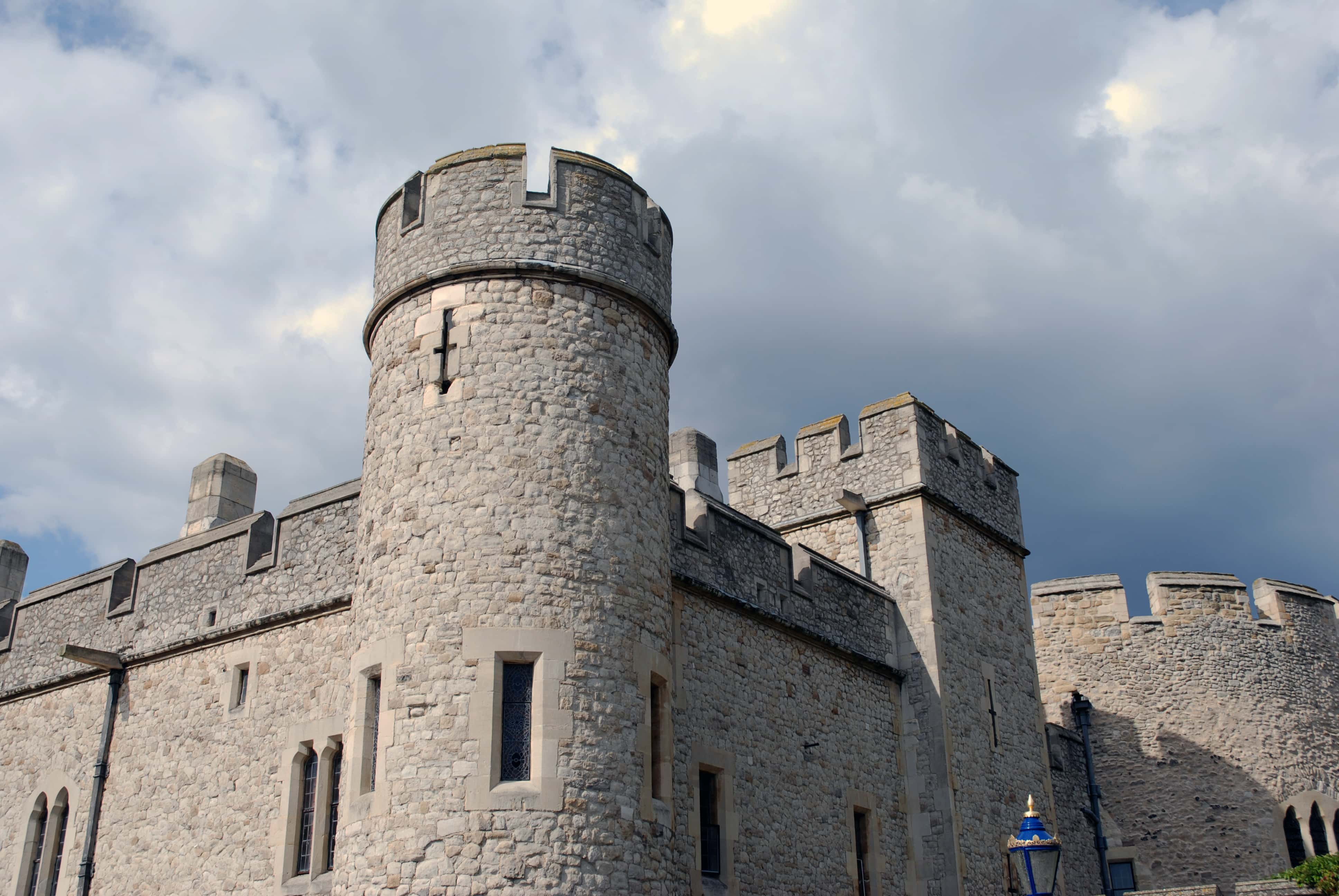 Wikimedia Commons, allen watkin
Wikimedia Commons, allen watkin
38. Her Father-In-Law Met The Executioner
Of all the sorry trio of nobles now in the Tower of London, John Dudley was by far the most ambitious. Queen Mary knew this as well as anyone else, and she dealt him a brutal hand: She had him executed on August 22, 1553, barely a month after Jane lost the crown.
This was likely terrifying to Jane. But for a little while, it did seem luck was on her side.
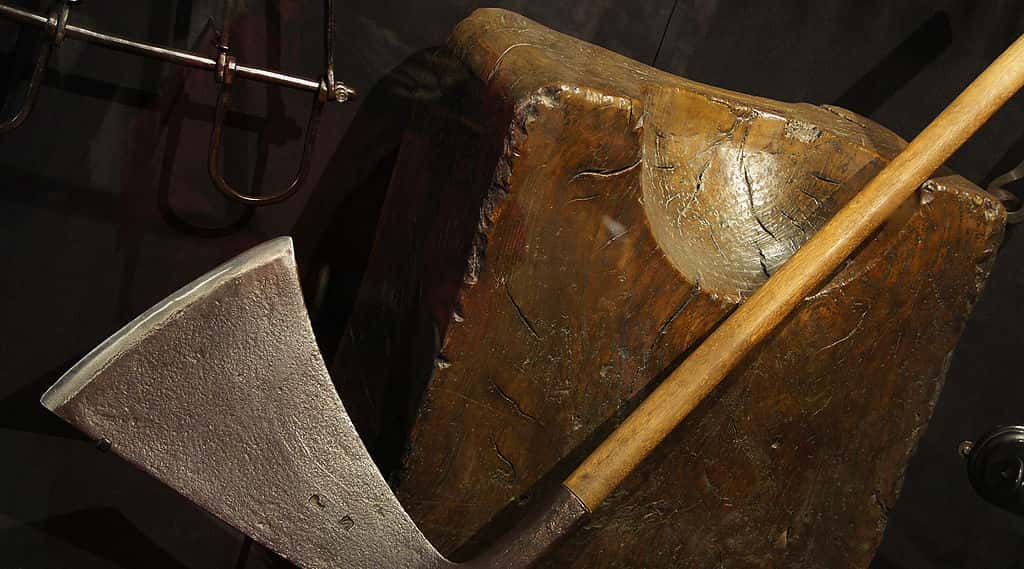 Wikimedia Commons, Steve Evans
Wikimedia Commons, Steve Evans
39. The Queen Initially Spared Her
Although Jane herself was originally sentenced to be burned, Mary was sympathetic to the fact that the young girl had simply gotten wrapped up in a game of thrones she couldn't understand. Plus, Jane was her cousin. As a result, Mary spared Jane and Guildford's lives (at first). Jane's role in that rescue was bigger than you might imagine.
40. She Fought For Her Life
Whispers swirled around this time about the level of Jane's agency in her rise to the throne, and Jane now did everything she could to prove she had very little say in the matter. In front of her cousin Mary, she may have even claimed that her parents forced her to marry Guildford Dudley in the first place, starting this whole nightmare.
Whether this was true or not, Jane was helping solidify the narrative that was was innocent and deserving of clemency. In the end, it was all for naught.
41. Her Family Made A Fatal Error
The tragedy of Jane is that when all was said and done, her fate was still out of her hands. In 1554, with Jane still sitting in the Tower and hoping for release, the so-called "Wyatt's Rebellion" rose up against Queen Mary after she chose the unpopular King Philip of Spain as her husband. While this had little to do with Jane, her family sure made it about her.
Foolishly, her father and uncles joined the rebellion against Mary, hoping to settle the score. When it failed, Mary didn't hold back her retribution.
42. She Lost Her Chance
After Jane's family proved once again they couldn't be trusted, the government held that it was best to go through with Jane's original sentence. Yet—despite her later moniker as Bloody Mary—Queen Mary wasn't as ruthless about this as you might think. She threw Jane one last, double-edged lifeline.
43. The Queen Gave Her A Heavy Choice
After the rebellion, the government set Jane's execution date for February 1554. Three days before, Jane got a devastating offer. Mary sent her personal chaplain over to Jane's cell to convince the girl to convert to her own faith, Roman Catholicism. The conversion wouldn't save Jane's life, but Mary believed it would save her soul.
Queen Mary didn't get the reaction she may have been expecting.
 The Tudors (2007–2010), Showtime Networks
The Tudors (2007–2010), Showtime Networks
44. She Was Brave Until The Bitter End
Jane was young, perhaps naive, and facing certain death, but she wasn't about to back down from perhaps the one constant in her life—her Protestant faith. In the end, Jane refused to “repent” her devout Protestant beliefs, but she did befriend Mary's chaplain and let him be her escort when it came time for her execution.
Before that happened, however, she'd have to face another harrowing ordeal.
45. She Got One Last, Cruel Sight
Right before Jane herself was sent to die, Guildford Dudley was publicly executed at Tower Hill. Despite their rocky marriage, Jane was truly distraught at her husband’s execution, though this may have had something to do with her own impending death as well.
She caught sight of Guildford's corpse on her commute and exclaimed: “Oh, Guildford! Guildford!” in a display of grief. Then it was her turn.
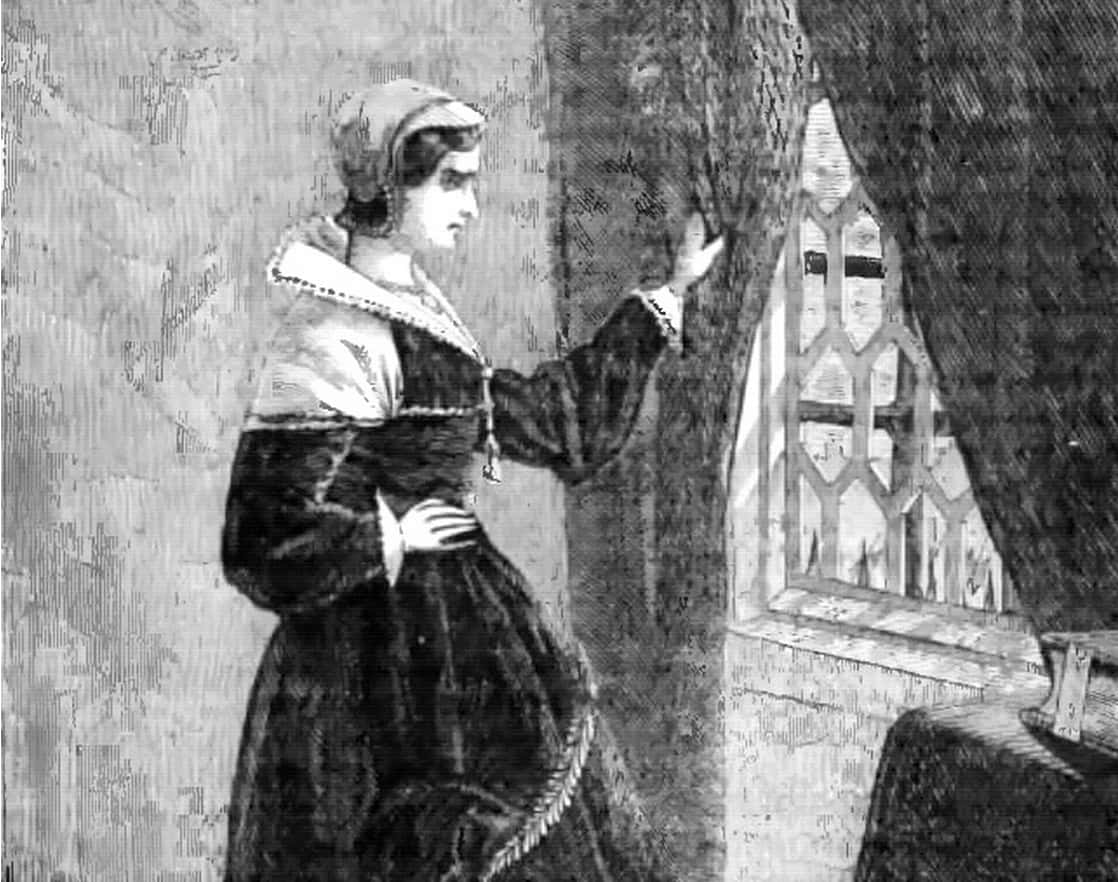 Wikimedia Commons
Wikimedia Commons
46. She Was Just A Teenager
Lady Jane Grey was executed on the Tower Green at the Tower of London in front of a group of her former subjects on February 12, 1554, just hours after her husband, Guildford. She was only 16 or 17 years old. Her father was spared a few more days before being executed on February 23, 1554.
47. She Had Heartbreaking Last Words
Jane asked her executioner if he was going to take off her head before she could kneel down. He replied, “No, madam.” Blindfolded, she then fumbled a bit—as awkward teenagers do—to find the block with her hands and cried, “What shall I do? Where is it?” A deputy helped guide her.
Right before the executioner struck her head off, Jane drew her heartbreaking last words—the same last words of Jesus Christ in Luke: "Lord, into thy hands I commend my spirit!"
48. Her Bad Luck Ran In The Family
Lady Jane Grey’s younger sister Catherine also suffered a horrific fate. She spent the rest of her life in captivity, though she was never executed. Catherine Grey first enjoyed some favor as the cousin and ostensible heir of Elizabeth I. However, she spoiled it by secretly marrying without the Queen’s permission.
Catherine gave birth to her two sons in the Tower of London—where her older sister had spent her last days—before she herself passed from consumption in 1568.
49. She Has Her Own Ghost Story
The alleged ghost of Jane Grey has made several appearances at the Tower of London. Her most famous reported sighting was in 1957, when two guards say they spotted a phantom woman walking above the battlements. Since then, many visitors say that her ghost pops up around the time of the anniversary of her execution.
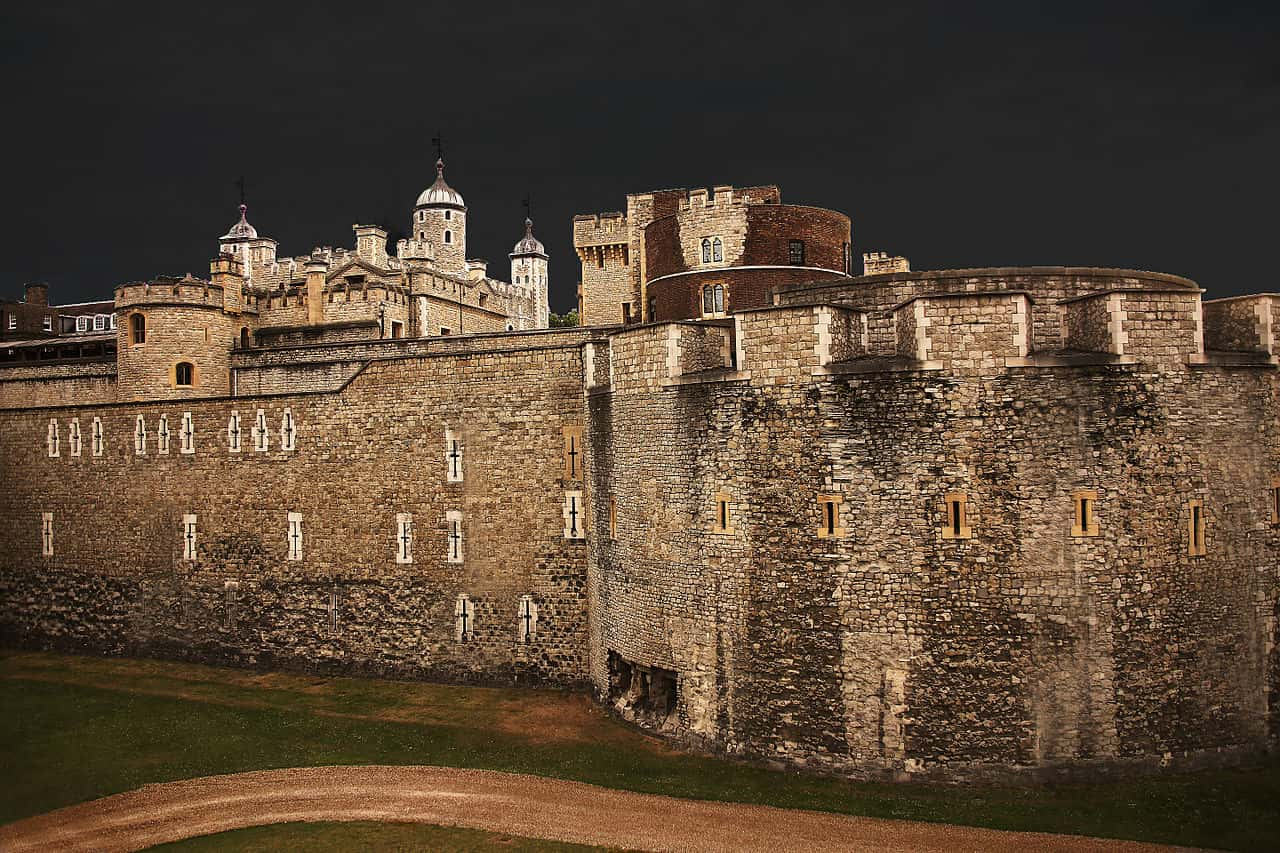 Wikimedia Commons, Rennett Stowe
Wikimedia Commons, Rennett Stowe
50. We Don't Know What She Looked Like
Jane is the only English monarch in the past 500 years for whom a definitive portrait does not exist. In the 90s, a long-time believed picture of her turned out to be that of her guardian, Catherine Parr. Perhaps because of this void—one of many in Jane’s life—centuries of artists have depicted her tragic story in music, painting, and literature, thereby giving face to a mostly faceless queen.
Sources: 1, 2, 3, 4, 5, 6, 7, 8, 9, 10, 11, 12, 13, 14, 15, 16, 17, 18, 19

